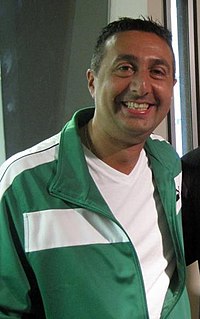A Quote by KT Tunstall
Related Quotes
Oh, I love labels, as long as they are numerous. I'm an American writer. I'm a Nigerian writer. I'm a Nigerian American writer. I'm an African writer. I'm a Yoruba writer. I'm an African American writer. I'm a writer who's been strongly influenced by European precedents. I'm a writer who feels very close to literary practice in India - which I go to quite often - and to writers over there.
Confessionalism relates to writers of color. I think confessional poetry is in its way very Catholic, capital C. One of the formative ideas of Confessionalism, beyond psychoanalysis, is a very actual fall from grace. And, at least in America, people of color never occupy that position of grace the way that white people do. So I think that in some very actual ways the confessional mode, strictly speaking, is not possible for non-white writers.
I never learned to be a writer. I never took screenwriting courses. I never read anyone's scripts. As a writer, my only guiding principle has been to write about things that scare me, write about things that make me feel vulnerable, write about things that will expose my deepest fears, so that's how I write.
The whole point about vision is that it's very individual, it's very personal, and it has to be confessional. It has to be something which hurts - the pulling out of it and putting it on the page hurts. Art can be about the individual writer's response to his or her condition, and if that response comes out of a predigested belief about what the audience wants to hear about the writer's condition, then it has no truth, it has no validity. You either write with your own blood or nobody's. Otherwise it's just ink.




































